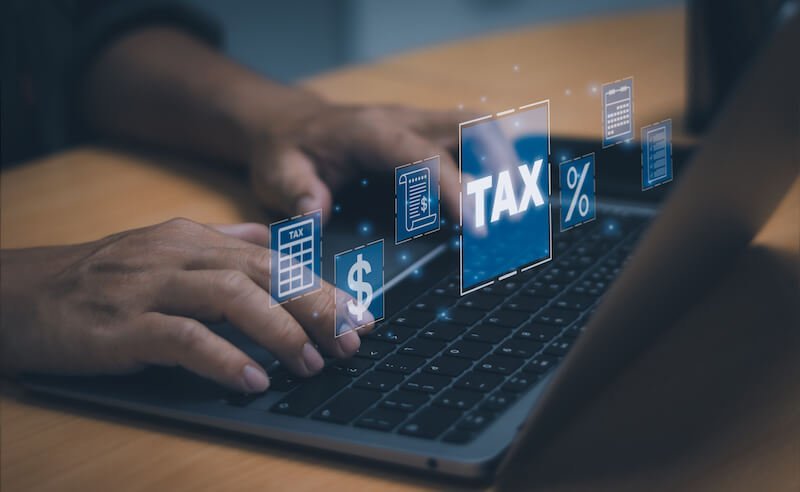
Investing in a rental property can be a smart move, but there's much to consider before jumping in. It's important to be aware of factors such as the state of the market, the potential expenses of owning a rental, and whether or not to hire a property manager before you even start looking for the right property.
Understand Your Local Rental Market
Whether you're interested in investing in quaint condos or sprawling multi-family homes, researching the local rental market before investing in rental property is vital. Awareness of average rent prices and vacancy rates, among other factors, can help you make an informed decision about your investment.
Average Rent Prices:
Knowing the average rent price for a particular area will give you an idea of what kind of return on investment you can expect from your rental property. If you can collect monthly rent for a property around the same as the median rent price in your area or higher, chances are it's a good investment opportunity.
Vacancy Rates:
Vacancy rates are another important factor to consider when investing in rental properties. A high vacancy rate indicates that there may not be enough demand for rentals in the area which could lead to lower returns on your investment. The lower the vacancy rate, the higher the odds you can secure a renter without the need for excessive tenant retention strategies.
Other Factors:
Economic conditions and population growth trends are some of the other factors to consider when deciding whether to or not to invest in real estate. Additionally, researching zoning laws and regulations related to renting out residential properties can help ensure compliance with your area's applicable laws and regulations. These regulations protect both landlords and tenants alike from any potential legal issues in the future.
Calculate Your Expenses
When it comes to investing, it's not a good venture if you can't make a profit. Knowing how much money you will have to spend on a property before you purchase it can help ensure you don't end up with a money pit instead of a successful rental investment.
The 2% Rule:
The 2% rule is a popular real estate investment strategy that states an investor should not purchase a rental property unless the expected monthly rent is at least two percent of the purchase price. This ensures that the rental income covers most, if not all, of the mortgage payment and other expenses associated with owning a rental property.
Putting Money Down On Your Real Estate Investment:
Ideally, you want to be able to put at least 20% down on your real estate investment purchase to avoid having to pay private mortgage insurance. There are many ways to come up with the money for a down payment, including getting a loan, seeking out down payment assistance programs, and borrowing from retirement accounts.
Mortgage Payments:
The first expense associated with owning a rental property is the mortgage payment. This includes principal and interest payments, as well as any other fees associated with obtaining financing for the property. Make sure to factor in all costs when calculating your monthly mortgage payment so that you can confidently figure out your estimated profit margin before purchasing and avoid common mortgage mistakes.
Taxes:

Property taxes are another expense associated with owning a rental property. These vary in each state and even among counties in the same state, so make sure to research what taxes apply in your area before making any investment purchases.
Insurance:
Insurance is also an important financial piece of owning a rental property since it protects both you and your tenants from potential liabilities or damages caused by accidents or natural disasters. Shop around and get quotes from multiple insurance companies before deciding which policy best fits your needs and budget.
Maintenance Costs:
Maintenance costs should also be considered when calculating expenses related to owning a rental property because they can add up quickly. From regular repairs like plumbing issues or roof replacements, these costs can really add up if left unchecked. It is important to budget for unforeseen repairs and keep up with regular home maintenance to help keep your investment in proper condition.
Other Fees to Check For
Lastly, other fees may be associated with renting out a home, such as HOA fees or varying utility costs depending on where the home is located and who owns it (landlord vs. tenant). Look for location-specific information on additional costs ahead of time so you can factor them into your budget.
Finding a Rental Property to Buy
You've crunched the numbers, and now it's time to start looking for a property within your predetermined budget. When looking for a rental investment, it's important to consider the home's location and condition to ensure you can market your investment property. Take note of features such as proximity to amenities like grocery stores, restaurants, parks, and public transportation when viewing properties.
Check for any structural damage or signs of wear and tear that could lead to costly repairs down the line. Inspecting plumbing fixtures, electrical wiring, roofing, and appliances can help you determine if any potential problems need addressing. Look for homes where home improvement projects that boost rental income have already taken place instead of signing up for a lengthy to-do list.
Lastly, ensure all necessary permits are obtained before buying a rental property. This will ensure your rental meets all safety standards set by your city or county government so tenants can live comfortably without worrying about their safety or legal issues related to renting an unpermitted unit.
Once you have identified a suitable property, it is time to start negotiating the price. Be sure to research and be prepared for any potential obstacles in order to get the best deal possible.
Prepare to Negotiate
Negotiating during a real estate transaction is an important step in the process of buying or selling. It's essential to understand the market and be prepared for negotiations. Before entering into any negotiation, you should research comparable properties in your area and understand what similar homes are renting for. This will help you determine how much you can realistically offer when negotiating with a seller.
Stay Ahead by Working With Professionals
When it comes to buying and managing a rental property, getting professional help is essential to ensure you and your tenants are protected.
Real estate agents are a great resource for finding rental properties. They have access to listings of homes on the market and can provide valuable advice about what type of home might best suit your needs. Additionally, they can help you negotiate a fair price when making an offer once you've found the right property.
Consider hiring an attorney to tediously review contracts and other legal documents associated with purchasing your rental property and explain any potential risks or liabilities. They will also be able to advise you on how best to protect yourself from things like tenant disputes or landlord-tenant laws that may apply in your area.
Working with a qualified financial advisor specializing in real estate can help ensure you make a sound investment. They can help you calculate all of your expenses, including mortgage payments, taxes, insurance premiums, maintenance costs, and more, so that you know exactly how much money you need upfront and what kind of profit is plausible.
Engaging a tax specialist can undoubtedly be beneficial when filing taxes at the end of each year. They are familiar with deductions related to owning investment properties and could help you save money. Working with a professional ensures accuracy while relieving some stress during a time when you may already be juggling your own personal tax season obligations.
Do Your Research and Invest
Buying a rental property can be a great investment, but it is important to research and understand the risks involved. Rental properties come with additional costs such as taxes, insurance, maintenance, and repairs that need to be taken into consideration when determining if it's a worthwhile investment. Additionally, you should consider the current market conditions and whether or not there is potential for appreciation in value over time. When carefully researched and evaluated, buying rental property can absolutely be worthwhile in the long run.



